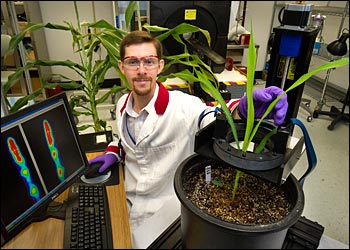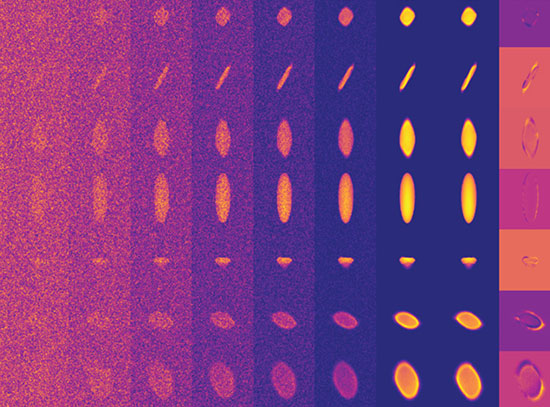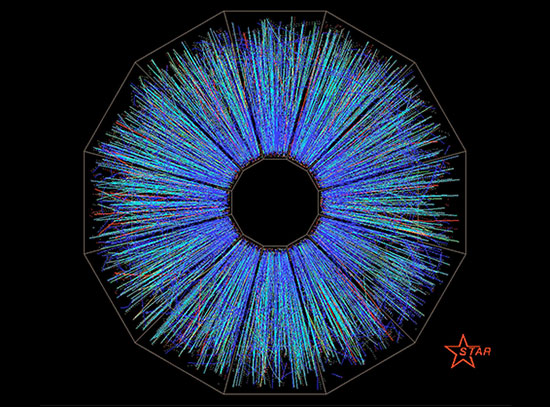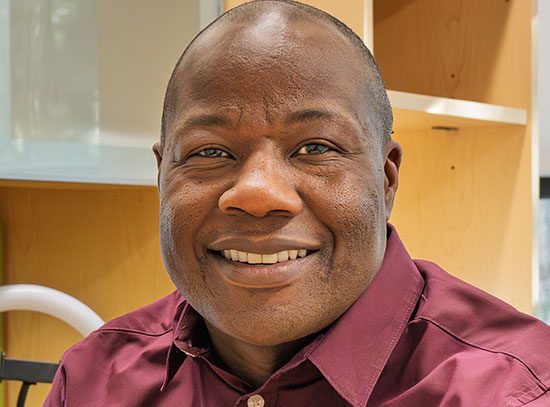480th Brookhaven Lecture Today, 9/19
PET Plants: Imaging Natural Processes For Renewable Energy From Plants
September 19, 2012

Goldhaber Fellow Ben Babst with a prototype of a positron emission tomography (PET) device for imaging plants. This device is being designed and built through a collaboration between BNL’s Medical and Physics Departments, its Instrumentation Division, and Sherbrooke University in Canada.
War or peace, feast or famine, food or fuel: These may be among the most extreme possibilities, but stakes are high in the quest for energy security in the 21st century. Scientists at Brookhaven Lab are among the many people working toward solutions to these challenges. In the Lab’s Medical Department, innovating scientists are using a technique called positron emission tomography, or PET imaging — commonly used to diagnose cancer and study brain activity — to investigate plants’ abilities to make substances for biofuels that could one day power our vehicles, homes, and industry.
On Wednesday, September 19, join Ben Babst, a Goldhaber Fellow in the Medical Department, for the 480th Brookhaven Lecture, titled “PET Plants: Imaging Natural Processes for Renewable Energy From Plants.” Goldhaber Postdoctoral Fellowships are three-year appointments awarded to candidates with exceptional talent and credentials who have a strong desire for independent research at the frontiers of their fields. All are invited to attend this free talk, which is open to the public and will be held in Berkner Hall at 4 p.m. Refreshments will be offered before and after the lecture. Visitors to the Lab 16 and older must carry a photo ID while on site.
To join Babst for dinner at The Bellport restaurant off site following the talk, contact Amalia Ruggiero (Ext. 2837).
During his talk, Babst will discuss the benefits of getting usable energy from plant biomass as well as some of the challenges, including the limited availability of land and resources used to grow the food needed by people and livestock. He will also explain the medical imaging techniques that he and his colleagues have used to study plants’ natural processes such as vascular transport and metabolism, along with their findings that point to new strategies for achieving the highest quality plants and greatest energy yields.
About the Speaker
Babst earned a master’s degree in horticulture from University of Maryland in 2000 and Ph.D. in biology from Tufts University in 2006. He did research and taught at both schools before becoming a postdoctoral researcher at Michigan Technological University in 2006 and the University of Georgia in 2008. He arrived at Brookhaven in 2010 after receiving a Goldhaber Fellowship.
2012-3331 | INT/EXT | Newsroom









